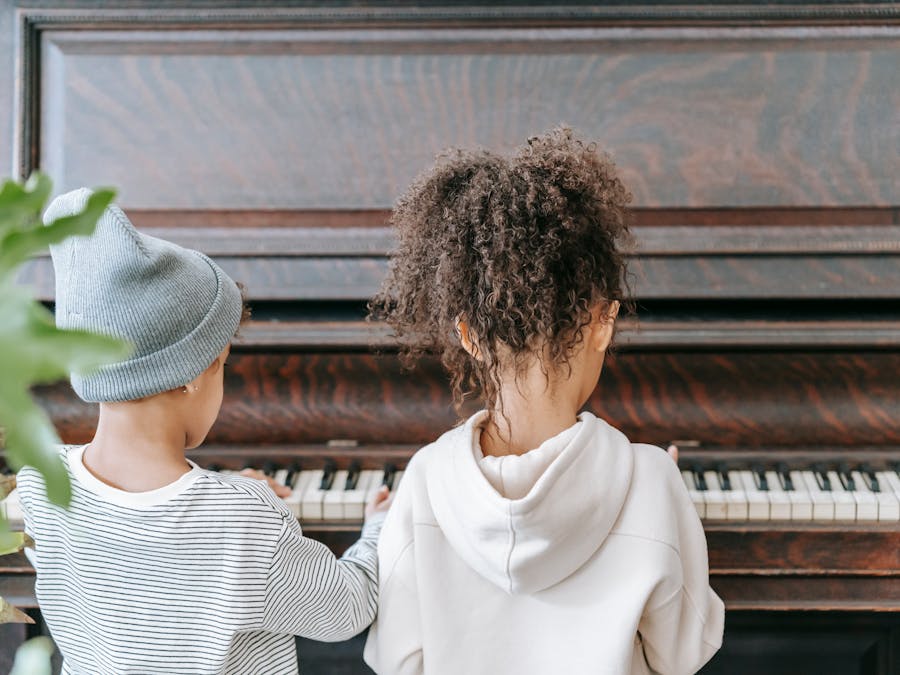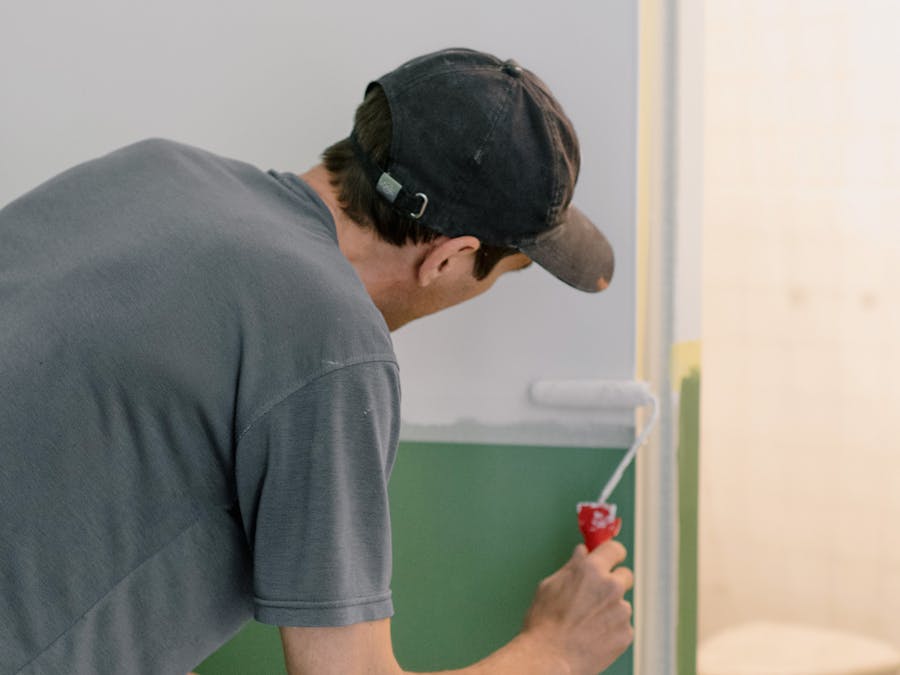 Piano Guidance
Piano Guidance
 Piano Guidance
Piano Guidance

 Photo: Marta Wave
Photo: Marta Wave
Contrary to popular belief, learning two instruments simultaneously is perfectly achievable. Many professional musicians will have some degree of competency on a second instrument. Research indicates that learning two instruments at once will not adversely affect progression on either instrument.

A split leap or split jump is a sequence of body movements in which a person assumes a split position after leaping or jumping from the floor,...
Read More »
If you want to be a professional classical performer, you're looking at a minimum of 10 to 15 years of concentrated study with a master teacher,...
Read More »In my years as a music teacher, I have often had parents ask me if their children can learn two instruments at once. Their concerns relate to not wanting to confuse or overload their child. Below are some guidelines for what will and won’t work when it comes to learning multiple instruments concurrently. Can I Learn Two Instruments At The Same Time? Contrary to popular belief, learning two instruments simultaneously is perfectly achievable. Many professional musicians will have some degree of competency on a second instrument. Research indicates that learning two instruments at once will not adversely affect progression on either instrument. Many of us believe that it is advisable to stick to one thing, master that and then move on to the next thing. This belief is pragmatic and a worthy approach when applied to other areas of learning however when it comes to music we have to consider something which many people often overlook. Learning two instruments cannot be compared like for like with say, learning two languages for example. When an individual is learning two new languages they may be required to embed two sets of grammatical rules, two sets of vocabulary, two recommended syntax structures and so on. This may lead to confusion during the process. It is not impossible to learn two new languages at once but it requires dedication and the general consensus is that it should be one at a time if possible. When faced with learning two new instruments at once, we are faced with something different. The key here is the commonalities. Both instruments will be used to elicit a combination of sounds from the same palette as each other. Essentially we are now learning two instruments to speak a common language, music. This interaction allows the student to assess the intricacies of how a particular musical phrase is achieved on one instrument and to cross-reference that against how the same musical phrase may be achieved on the second instrument. The very act of comparing and contrasting two approaches to a common musical phrase across two mediums will help to embed the processes required for each individual instrument. So learning two instruments at the same time is not only possible but may actually be preferable in achieving a more robust foundation on both instruments.

The F3 key is a function key found at the top of almost all computer keyboards. The key is often used to open the find or search feature of a...
Read More »
Major scales are basic to your understanding of musical keys and are the scales that most piano students learn first. Most everyone agrees that the...
Read More »
Pianoforall is one of the most popular online piano courses online and has helped over 450,000 students around the world achieve their dream of playing beautiful piano for over a decade.
Learn More »Now consider the same scenario but this time you have introduced learning violin to the equation. You still have that time after dinner assigned, 7 pm – 8 pm. But now you have to fit two different practice sessions into that hour. So you do half an hour of piano practice and start to get a feel for things but now you have to stop your rehearsal and practice your violin for the remaining half an hour. The context switch isn’t too tricky to overcome because you’re like all clever and super competent n’ stuff. Soon you get into the swing of it and are playing some violin scales like Nigel Kennedy. However, after about 15 minutes you start to tire and lose focus. Eventually, it reaches 8 pm and you can stop. Off you go to read more miniVIRTUOSO or watch Netflix for an hour and then to bed as usual. Over the course of the next few months, you may find that you are not making as much progress on either instrument as you would have expected if you were learning just one. You are determined and as the week’s progress you start to look more and more like Beethoven as you sit at the piano each evening. You are bedraggled and tortured. Your rate of progression has slowed. Why? Well, we can all recognize that it’s because you are devoting less time on the whole to each instrument. You are spreading yourself too thin. So you decide to make an alteration to your practice schedule and now devote two hours back to back, one hour to the piano and one to the violin. You are determined and as the week’s progress you start to look more and more like Beethoven as you sit at the piano each evening. You are bedraggled and tortured. This grueling routine leaves you no time for an hour relaxing afterward. Each evening you finish violin following a two-hour slog and fall into bed exhausted. In a few months, you find you still have not progressed very much and now you are tired and cranky each night. You start to miss your relaxation time and resent the time that playing these instruments is carving from your evening. Soon you decide to skip violin one night and instead watch Netflix. Another night you skip piano. This starts to happen more often until eventually, seeing no real progress you lose confidence, start to slip and ultimately stop practicing altogether. The violin and piano begin to gather dust. You do however finish that Netflix series in record time. Go you! It is a pity but I see this scenario or a variation on this scenario happen all too often. It doesn’t necessarily have to be with two instruments either. Sometimes it’s one instrument and studying for exams. Sometimes it’s trying to learn a new instrument on top of a full-time job, acting as a chauffeur for children and cooking a family meal. Somethings gotta give and unfortunately, it tends to be the instrument which goes first. However, if we think of the scenario above there is a fix that can be applied which is so simple and so effective that many of us don’t even consider it. You will forgive my selfless plug for my own website above, but there’s a reason I wanted to highlight that section. It is scientifically verified that the downtime following a period of attention and focus is absolutely critical in helping the brain to retain information. By omitting the downtime you are not giving your brain an opportunity to process what has just been learned. It cannot be committed to long-term memory. It stays in a fleeting state. In the above scenario, we loaded ourselves with two hours of music practice and then straight to bed with no relaxation time. This was bound to end up in a crash sooner rather than later. So what can you do to ensure you give yourself an opportunity to succeed? What I outlining here is something which you can apply across all facets of your life. When you need to learn two skills at the same time come back here and look at the following steps. Bookmark this page now, I promise you this simple little trick it has helped my students to excel more than anything else I have taught them. To learn two instruments at the same time you need a proper rehearsal routine. Follow this checklist when you set out on your musical journey. This checklist assumes an individual is learning two instruments (piano and violin).

The key of G major mostly uses the notes of the G major scale, which are G, A, B, C, D, E, and F♯. The key signature has one sharp, F♯, and its...
Read More »
5-3 means root position chord. Look at the bass note (B). Add a note which is a fifth higher (F#) and another which is a third higher (D). This...
Read More »
A three-minute song would usually be around 80 to 90 bars in total depending on the BPM. Taking into account all types of music, the 'average' song...
Read More »
If you have an upright piano, it's not really necessary to clean the inside. Maybe open the bottom lid (below the keyboard by your feet) and...
Read More »
Men prefer a woman who can stay calm and relaxed. Beauty is more than make-up and a fancy haircut. Men find women more attractive when they are...
Read More »
Your keyboard's typing feels, and its sound depends upon the keycaps used. ABS keycaps are supposed to make more noise as compared to PBT keycaps....
Read More »